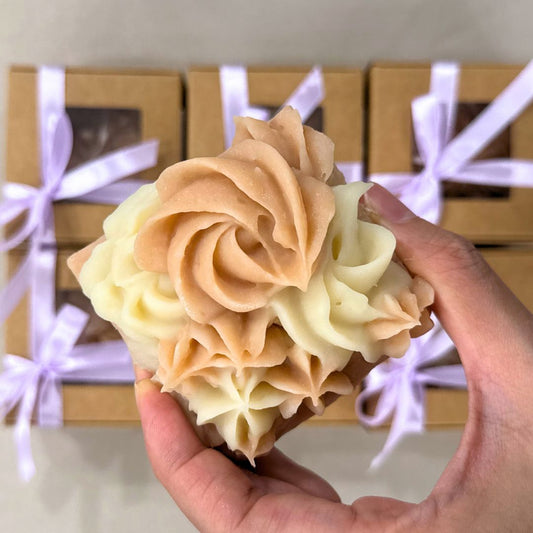This is one of the most asked questions we have. And its also something I myself had to look into when I first started using handmade soaps many moons ago.
Firstly, why does it seem to get soft or melt or disappear faster than other commercially available soap bars?

Why does it melt or get softer faster?
Natural soap bars and handmade soap bars made the old fashioned way
oil + lye = soap (with glycerine)
is very different from most commercially available soap bars because they are either
- x no. of surfactants & detergents + glycerine = soap, or
- Soap noodles (usually made with palm oil & palm kernel oil which makes a super hard soap, and with glycerine removed) + glycerine (optional… & at any amount they like) = soap. (yes, logical? Yes, because money! Separate them and you get to sell 2 products instead of 1!)
Natural handmade soaps or all natural soaps are higher in glycerine content than commercially available soaps.
Most commercial soaps intentionally have less glycerine, so that they do not sweat nor shrink when on the shelves. (and also so the extra glycerine gets to go into moisturisers...)
Why is glycerine so important in this discussion?

What's glycerine got to do with anything?
Glycerine is great for skin because it loves water. It helps keep the moisture in our skin, and help keep our skin soft too. Which is why handmade soap is great for skin. (You can read more about it here.)
Because of this property of glycerine, when it is in our handmade soap, it has the tendency to soak up water surrounding it!
Thus, if your shower or bath is really steamy and warm, with lots of water everywhere, your handmade soap will just absorb all this moisture and get softer. Also, if it sits in a puddle of water, it will soak it all up into the soap and then get really mushy and soft. *sad face*
What to do then?
Thus, if you find your soaps are getting mushy or melting too fast, keep them in a dry, airy place so that they can dry out in between use.
Find out more about how to keep your handmade soaps last longer here.




